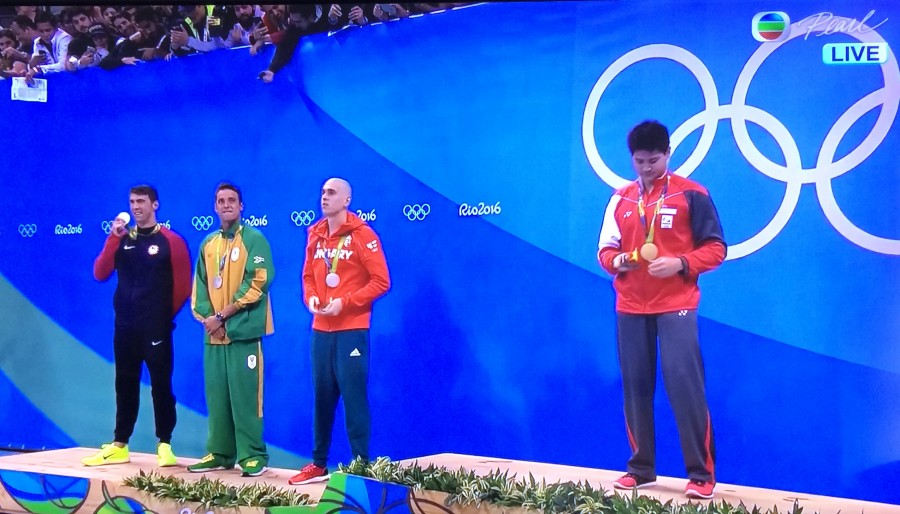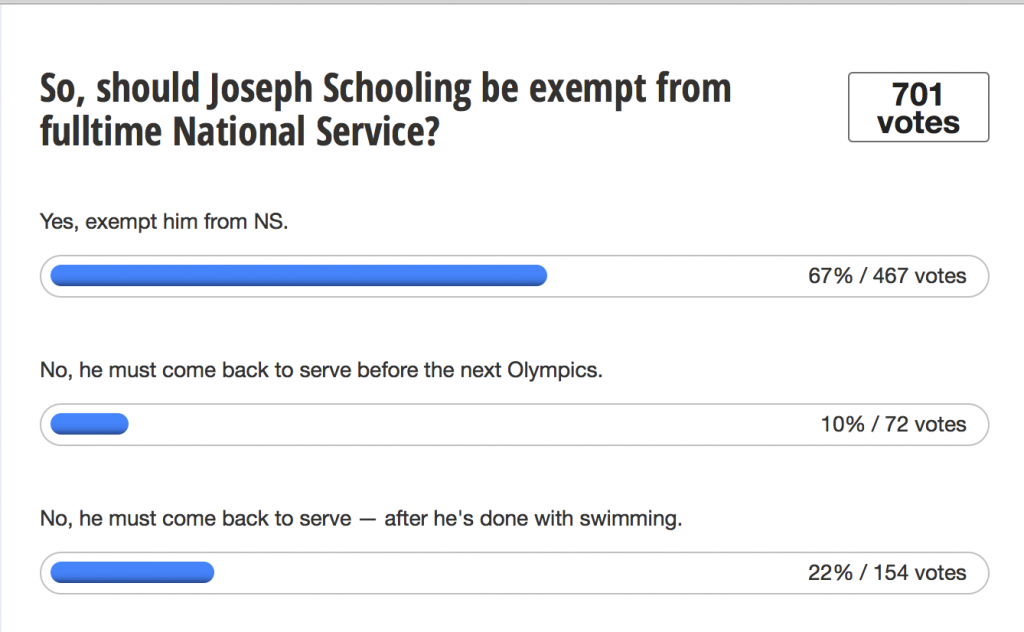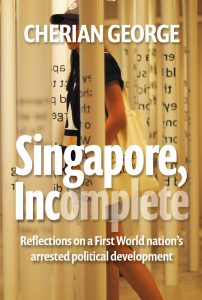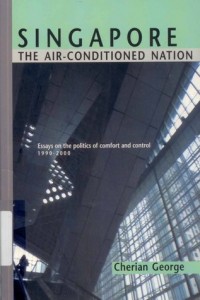FLOAT LIKE A BUTTERFLY
Many Singaporeans want Joseph Schooling exempted from National Service. Can the government bend the rules?
In the wake of Joseph Schooling’s spectacular, surging success in Rio de Janeiro, two-thirds of people I polled said that the young hero should now be excused from his National Service obligation. The inconvenient question of his NS status had been raised by a couple of friends, so I was curious to find out what others thought.
Admittedly, this was an unscientific survey, probably skewed by post-Rio euphoria, tilted toward the viewpoints of those with time to dawdle over social media, and under-representing men and women in uniform who are too busy keeping the country safe to take part in an online poll.
Nevertheless, I’d wager that most Singaporeans do indeed feel that Schooling should be allowed to continue serving the nation in his swimming trunks instead of a No. 4 camouflage uniform.
Those who don’t know Singapore may think that this reflects people’s indifference toward NS. I doubt that that’s the case. Singaporeans may complain about specific aspects of NS, but there is broad and deep commitment to the institution of compulsory enlistment for all males. NS is regarded as a key rite of passage, and one of the great equalisers in a divided society.
So, when Singaporeans say they are prepared to make an exception for Schooling, you can bet it’s not because they dismiss NS as no big deal, but because they regard his accomplishment as, well, Olympian.
This sentiment may put the Singapore government in a bind. With good reason, the government does not exempt able-bodied males from NS. Every now and then, Singaporeans suggest alternative avenues for service, including through sport. But the government has, correctly in my view, resisted calls to dilute the core mission of NS. It maintains that NS is meant to serve one purpose: defending the security of the nation. You can’t substitute it with other forms of contribution, no matter how valuable they may seem.
To do so would lead to endless bickering over legitimate justifications for being excused from military service. Take, for example, a young technopreneur who has just launched a world-beating startup that could be the next Samsung or Apple. Without the two-year interruption of NS, he could create a homegrown private-sector MNC—something as rare an Olympic medal, and much more tangible in value.
On what basis would this geek get his NS call-up while Schooling is allowed to continue chasing sporting glory?
The main reason I’m opposed to liberalising enlistment rules is that educated, upper middle class families are bound to benefit disproportionately—they are the ones who will be able to find the loopholes and write up convincing justifications. We could end up with a situation where less privileged Singaporeans are the ones compelled to put their lives on the line for the country.
I would not fault the government for thinking through such complications. After all, Singapore did not get to where it is through impulsive, arbitrary decision-making (except, perhaps, when dealing with critics and opponents). Bureaucratic rationality can be a massive turn-off, but with something like NS, the government really has no choice but to take into account boring things like rules and precedents.
And yet.
When we saw that gold medal around a Bedok boy’s neck; when we gaped at our Singapore flag flying higher than the American stars and stripes; when Majulah Singapura played, and we realised that hundreds of millions of people around the world might be listening with us—can anyone fault us for wanting even more?
What makes Schooling’s triumph in the 100m butterfly so addictively sweet is the sense that this is just the beginning. The 21-year-old can keep delivering, and if he is allowed time to sustain and better his world-beating performance, other Singaporeans will follow. This dream is not some mythical unicorn that vanishes into the night, but an achievable goal with the proven nation-building potential of competitive sport.
Schooling’s NS status is a policy dilemma that is emblematic of the times. On many fronts, Singapore’s leaders are called on to balance the hard truths that dictated past decisions with the less tangible needs of a First World society. If they are up to the challenge, they will be able to find a creative way to let Schooling keep swimming, without compromising the principle of universal conscription that underlies national defence.
Then, to quote another champ, Singapore can float like a butterfly and still sting like a bee.








Comments are closed.